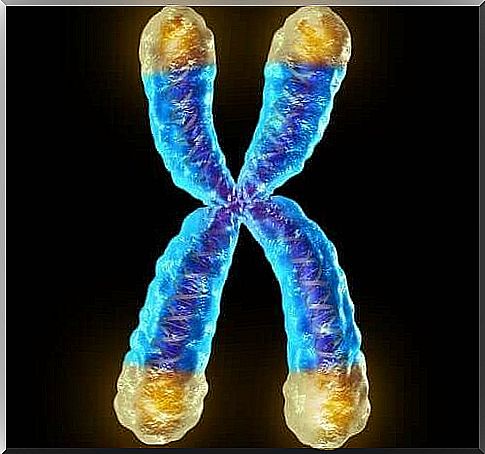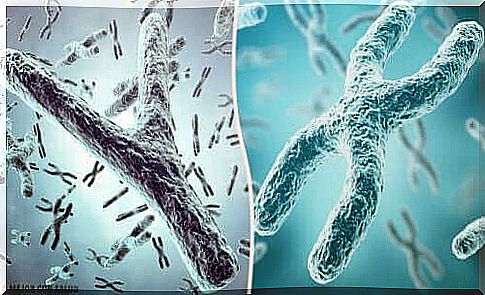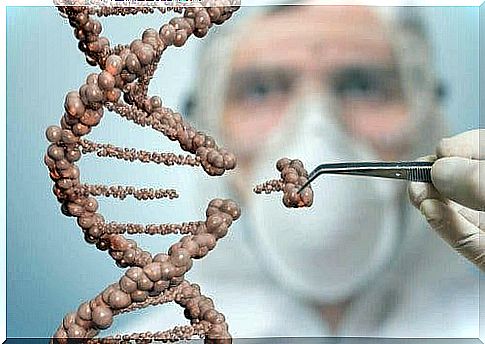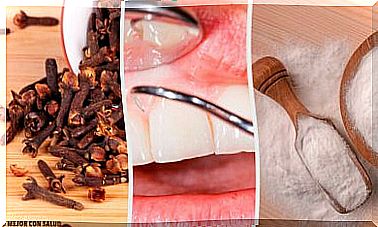What Are Telomeres For?

Telomeres are the field of repetitive nucleotide sequences at each end of a chromosome and one of the most fascinating subjects of current science. We think they hold the answers about complex and puzzling processes like aging, cancer and death.
- In the 1930s Hermann Joseph Muller, in the company of Barbara McClintock, discovered telomeres. It even won them a Nobel Prize.
- Subsequently, in 2009 the researchers Elizabeth H. Blackburn, Carol W. Greider and Jack W. Szostak received another Nobel Prize in Physiology or Medicine for their research on the same topic.
A number of scientists previously believed that cells could divide indefinitely. However, others found that the cells can only divide a certain number of times and then die. The length of the telomeres determines how quickly the cells die.
What are telomeres?

As we mentioned above, telomeres are the ends of chromosomes. The word comes from a Greek root that literally means ‘end portion’. It looks a bit like the plastic part at the end of your shoelaces.
Telomeres are the protective shields of the DNA of human cells. Thus, thanks to them, the chromosomes can largely maintain a stable structure. This stability allows cells to divide normally.
The ends of the chromosomes play an important role in many functions. Thanks to them, the cells do not stick to each other and that is very important for life itself. With telomeres we can determine the aging of an organism, among other things.
Understanding Telomeres
The cells are constantly dividing (Spanish link) to regenerate the tissues and organs of our body. Each of these divisions shrinks the telomeres a little and they gradually shorten. Then there comes a time when they are so small that they can no longer fulfill their function of protecting DNA.
They get to that point because the cells get older and stop dividing. The length of telomeres is measured by a unit called kilobase. They have an average length of 11 kilobases at birth, and the figure decreases to about 4.
The shortening of telomeres, and thus their inability to protect DNA, appears to be the cause of aging and the appearance of age-related diseases, including:
- cardiovascular problems
- neurodegenerative diseases
- infertility
- diabetes
- cancer
Telomerase and Youth

Inevitably, telomeres shorten with each new cell division. However, this enzyme is moderated by an enzyme called telomerase. Thus, it is able to regenerate the length of these chromosome components to a certain extent.
Stem cells are like telomerase guards. However, the production of this regenerating enzyme decreases with age and increases the rate of cell deterioration. In theory, if telomerase production never stopped, we’d be forever young.
However, there is only one problem. Cancer cells have very long telomeres and produce a large amount of telomerase. These do not age and thus divide profusely. The conclusion is then that a low production of telomerase makes you older, but a high production increases your risk of cancer.
In this regard, one of the scientific problems is maintaining telomerase generation without causing cancer. So they conducted experiments with mice that yielded encouraging results.
Let’s not rule out the possibility that in the near future they can achieve their goal of manipulating telomerase the way they want without unwanted side effects.
The influence of habits
Several studies have shown that certain habits shorten telomeres. As you can guess, the most harmful habits for shortening telomeres include:
- excessive intake of sugary drinks.
- to smoke.
- a sedentary lifestyle.
- lack of adequate rest.
- air pollution.
Similarly, they found that chronic stress shortens telomeres and that cortisol, the stress hormone, reduces its production.
The data on the influence of food are inconclusive, but there may be a connection between longer telomeres and the consumption of vegetables, fruit, omega-3 fatty acids and coffee.
Researchers also found that babies fed exclusively with breast milk for the first 4 to 6 weeks have longer telomeres by age 4. In addition, shorter telomeres appear to be associated with clinical depression.









